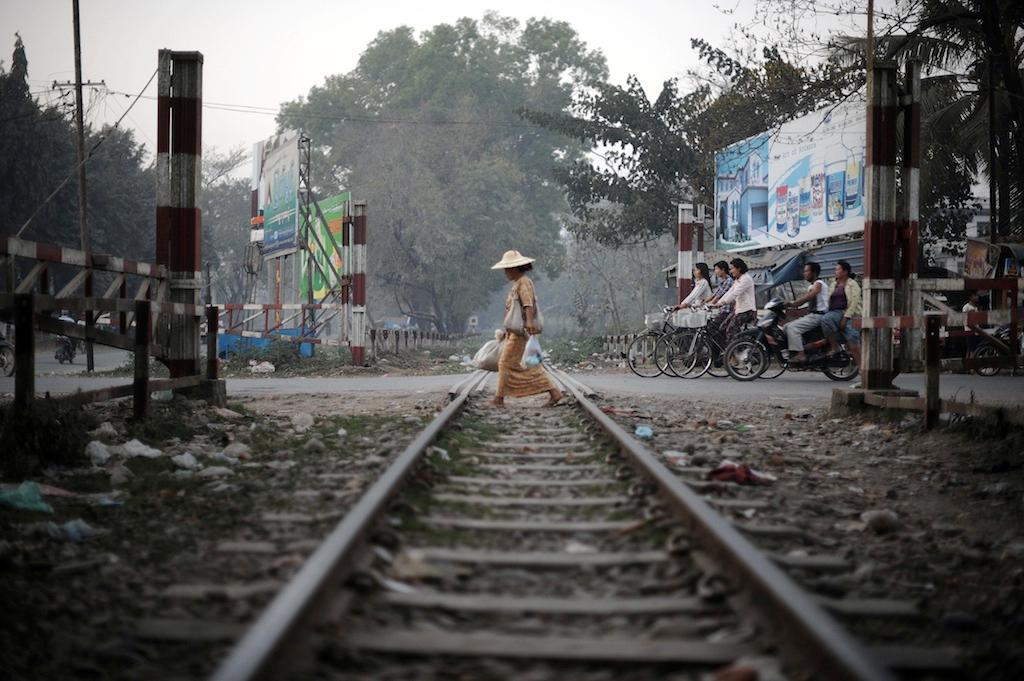Burma reforms don’t reach Kachin region
A Myanmar woman crossing railway tracks in Myitkyina, northern Kachin state. Human Rights Watch reported the Burmese military is guilty of abuses against civilians in the region.
World leaders and rights organizations are watching Burma closely as the country takes small steps toward democratic reform.
With the 2010 release of opposition leader and Nobel laureate Aung San Suu Kyi, many are optimistic for the future. Over the past two years, Burma has also introduced democratic elections, a newly formed National Human Rights Commission and a move to uncensor the media.
But a recent Human Rights Watch report shows these reforms don't reach the entire country, and in the northern Kachin state, a host of military-sponsored atrocities are taking place. Burma's northern villages are caught in the crossfire between the official military and a rebel group, the Kachin Independence Army (KIA). Both sides are guilty of using mines, shelling and firing on civilians, the Human Rights Watch report said, and nearly 75,000 villagers in the area have been displaced since June. But the Burmese army is also accused of using child soldiers and forced labor, as well as torturing and raping civilians.
More from GlobalPost: Burma to allow election monitors at April polls
“The Burmese army is committing unchecked abuses in Kachin State while the government blocks humanitarian aid to those most in need,” said Elaine Pearson, deputy Asia director at Human Rights Watch, in a press release. “Both the army and Kachin rebels need to act to prevent a bad situation for civilians from getting even worse.”
The KIA has had an unsteady ceasefire with the Burmese military regime since 1994, but tensions flared again between the two groups in June of last year when a proposed hydroelectric dam project would have displaced thousands of ethnic Kachin people. The controversy over the Myitsone Dam continued, even after the project was shelved by the administration, and so did fighting in the area. And despite insistence by President Thein Sein that the military not attack KIA, it seems the Kachin region, which borders China's Yunnan province, is out of the government's control.
Win Mra, head of the National Human Rights Commission, said the government wouldn't intervene because of on-going peace negotiations between the groups, according to HRW.
More from GlobalPost: Burma or Myanmar, does it matter?
But the military's actions continue.
"At least eighteen women and girls have been gang-raped between June 10-18, 2011 during Burma Army advances on KIA strongholds along the China-Burma border," claims a press release by the Kachin Women's Association Thailand. "The Burma Army is committing gang-rape and killing on a wide scale."
The HRW report, based on two trips by rights workers to the area and over 100 interviews, also stated the need for humanitarian aid to be allowed in, because medical and food supplies are badly needed. “There’s still a long way to go before the people of Burma, particularly those in conflict areas, benefit from recent promises of reform,” Pearson said. “The international community should not become complacent about the serious human rights violations still plaguing Burma.”
